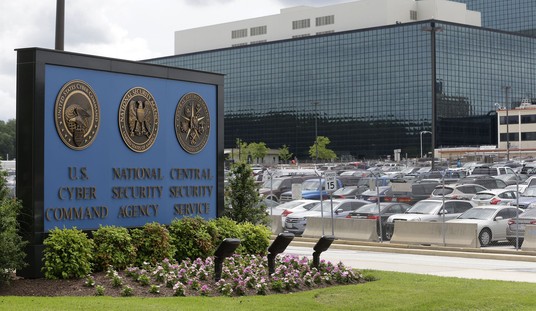As EU leaders met in Kiev to discuss financial cooperation and implementation of the Minsk ceasefire in Ukraine on Monday and Tuesday, heavy fighting and hundreds of explosions were heard in the city of Donetsk and the surrounding areas.
According to reports from the Organization for Security and Cooperation in Europe, who is tasked with monitoring ceasefire violations in the Donbas region, hundreds of violations of the ceasefire with artillery shelling, anti-aircraft guns, mortars, automatic grenade launchers, and small arms fire have all occurred since late last week.
“A significant part of the politicians in the European Parliament,” Latvian economist and Member of the European Parliament Roberts Zile told Townhall, “particularly from Eastern Europe -- they don’t have any trust to this agreement and whether it can create peace in eastern Ukraine and Crimea because it doesn’t give any answer to what’s happened.”
Delegations from the European Union, United Nations, 6-7 nations, global investors and businesses met in Kiev, Ukraine on Tuesday for an international conference to discuss cooperation in financial support, trade and national security measures for that country.
In his opening remarks, Ukrainian President Petro Poroshenko reiterated to EU leaders the importance of the Minsk agreement -- agreed to in early February, and violated by Russia ever since.
“Today, Ukraine needs Europe and West to stay united, the same united as it was in Minsk,” Poroshenko said. “The Minsk Agreements achieved with the great, coordinated and determined efforts of our partners must be implemented in full. Despite the fact that we are still under a threat of war, we are set to make a breakthrough.”
Recommended
On Monday, Poroshenko was joined in Kiev by EU leaders for the 17th EU-Ukraine summit. EU leaders again invoked the Minsk Agreements and called on the Russian authorities to honor the ceasefire and return all hostages.
Despite the high-profile rhetoric of EU leaders posturing to the media save international face, the war is still happening in east Ukraine. Many in the European Parliament are skeptical that the Minsk agreements will actually solve the problem of Russian aggression in eastern Ukraine.
The Minsk Agreement demands that fighting stop, that heavy artillery be removed from the region, and that hostages on both sides be returned. It ends the war, but as Zile points out, does not demand complete removal of Russian forces from the regions of eastern Ukraine currently under their control.
“Do we agree in the European Union that Ukraine is divided?” Zile asks, “What is the status of Crimea? I think it’s absolutely no solution, it’s just a temporary base for not killing people at least for some time. Something similar was done in Georgia in 2008, but it will not solve in the future anything around the crisis in Ukraine.”
As Minsk’s implementation in Ukraine fails to hold water, EU apprehension over a Russian move in the Baltics is far lower among representatives not from that region.
“Even though I am very skeptical in regards to any intervention of Western countries into the conflict that is going on in Ukraine, I consider an attack on any Baltic state a very different matter,” German MEP Beatrix Von Storch told Townhall. “Again, I consider most of the talk about a Russian invasion into the Baltics as fear-mongering. Nonetheless, every Member of the European Parliament has their own background, so I can understand that my colleagues from the Baltics are much more sensitive to Russian sabre-rattling.”
























Join the conversation as a VIP Member